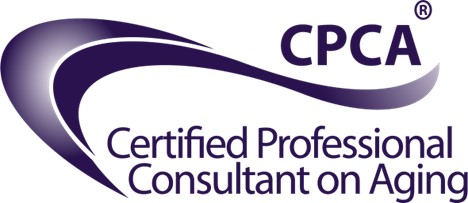
We’re Not Just Educating
Businesses and Professionals
We’re Shaping Better Communities.


It’s all about going that extra mile for your customers and clients! Newsletters are a great way to do that!
Many of you may have access to industry specific information and bulletins that your company provides, but you may not have access to great content about aging well! That is where we can help!
Client
Newsletters

Become an Age-Friendly Business® Member and Access All Of Our Member Services Online
Building a Legacy That Goes Beyond Material Wealth
Building a Legacy That Goes Beyond Material WealthHave you ever wondered what lasting legacy you will leave behind for future generations? While accumulating material wealth can be significant, passing on values and characteristics that will stand the test of time is...
Light – Circadian Rhythms – Health and Well Being
Light –Circadian Rhythms – Health and Well BeingDid you know that your tissues and organs have their own biological clocks? Even more compelling is the fact that these clocks are coordinated and synchronized! The conductor of this grand synchronization is a ‘master...
Sleep Better to Live Longer
Sleep Better toLive LongerIt has long been accepted that we need good nutrition and regular exercise to contribute toward our health and longevity. Did you know that quality sleep was just as important? We always think about sleep as being restive – and this is true....
Cognitive Reserve – Can We Beat Biology?
Cognitive Reserve –Can We Beat Biology?We know we are living longer — but are we living better? Most would agree that it is not just about adding more years to our life story, it is about making sure those years enriching and rewarding. Too often, though, we know of...
Intergenerational Learning : What Is Old Is New Again
IntergenerationalLearning :What Is Old Is New AgainImagine young and old coming together to experience, learn, and share. Innovative new programming, or a dusting off of the way it used to be? With our aging population, we see emerging examples of intergenerational...
Power of Older Workers Part 2
Part 2Power of Older Workers The previous Maturity Matters Newsletter alerted us to the exodus of a highly skilled and knowledgeable workforce leaving many organizations. More than half of their management teams and employees are positioned to leave as Baby Boomers...
Power of Older Workers – Part 1
Part 1Power of Older Workers In praise of wine, cheese, and older workers – why we need to woo, engage and retain maturing employees. The majority of maturing workers are there because they want to be, and increasing numbers need to be there. They are reliable,...
Tax Time Scams – Time for a Review and Update
The phone rings. You pick it up and the caller identifies himself as being from the government, contacting you on a problem with your taxes. Your heart races. You begin to wonder what could possibly be wrong? You picture investigations, fines, and trouble!...
National Advance Care Planning Day is April 16th
Keeping Our Voice – Part 2 – Advance Care Planning Life Happens….Be Ready. This compelling theme underscores the significance of our National Advance Care Planning Day held annually on April 16. When we cannot speak for ourselves – who will speak for us, and what do...
Fall Prevention Series – Part 3 – What to do After a Fall
The previous two editions of our ‘Fall Prevention’ series addressed the common environmental, biological, and lifestyle elements that contribute to the risk of falls. Even with the best prevention strategies, falls can still occur, and it is important for us to know...
Fall Prevention – Personal Risk Prevention
In the previous Maturity Matters Newsletter, we discussed how to reduce the potential of a fall by attending to the environmental risk factors looming inside and outside of your home. In this edition, we will introduce the biological influences and lifestyle changes...
Fall Prevention-Environmental Risks
“I’m still falling for you,” she joked, shortly after stumbling and tumbling to the ground while leaning over to kiss her husband of 60 years. We can appreciate her quick sense of humour – however, the serious reality is that falls are a major cause of injury and...

